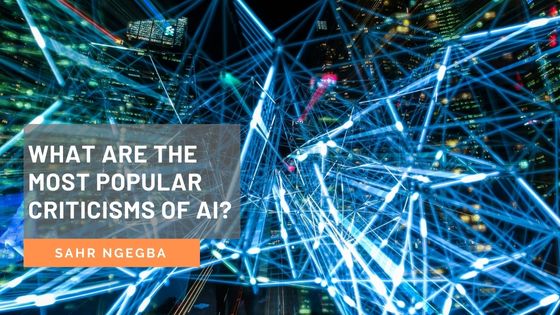Artificial Intelligence has rapidly evolved, influencing various aspects of modern life, from healthcare and education to industry and entertainment. However, this technological marvel is not without its criticisms. As AI becomes integrated, concerns regarding impact, ethics, and implications have intensified.
Artificial Intelligence, once a sci-fi fantasy, is now a tangible and rapidly advancing technology. Its evolution from simple machine learning algorithms to complex systems capable of deep learning and autonomous decision-making marks a significant leap in technological capabilities. However, with great power comes great responsibility, and AI’s meteoric rise has raised several concerns.
Critics argue that AI, while offering myriad benefits, also presents significant risks and ethical dilemmas. These range from job displacement to complex moral questions like autonomous vehicles or healthcare systems. Furthermore, data privacy, surveillance, and the potential for AI-enhanced cyber threats add to the growing apprehension.
As AI becomes more pervasive, its societal, economic, and ethical impacts are scrutinized. The criticisms focus not only on the current applications of AI but also on its future trajectory and the potential for unforeseen, possibly adverse, consequences.
Ethical and Moral Concerns
A primary criticism of AI centers around ethical and moral concerns. AI systems are often programmed to make decisions based on data and algorithms, raising questions about bias, fairness, and accountability. For instance, if an AI system is trained on data not representative of an entire population, it can lead to biased results, perpetuating societal inequalities.
The use of AI for privacy and surveillance raises further ethical questions. Massive data analysis may result in invasive monitoring, which raises serious privacy concerns. The potential misuse of AI in authoritarian regimes for citizen monitoring or in corporate settings for employee surveillance is a worrying prospect.
Moreover, the question of responsibility in AI decision-making poses a significant ethical challenge. In scenarios where an AI system’s decision results in harm, determining accountability becomes complex. This issue is particularly salient in areas like autonomous vehicles and healthcare, where AI decisions can have life-or-death consequences.
Economic and Employment Impacts
Another major criticism of AI is its impact on the economy and employment. Automation, powered by AI, threatens to displace numerous jobs, particularly in manufacturing, customer service, and transportation. This displacement could lead to significant job losses and economic instability, especially for workers in low-skill positions who may struggle to transition to new roles.
While AI may create new job opportunities, there is concern about the mismatch between the skills required for these new jobs and the displaced workforce’s skills. This skill gap poses a significant challenge for workers and policymakers, necessitating large-scale retraining and education initiatives.
Additionally, AI’s impact on the economy extends to its potential to exacerbate wealth inequality. As AI drives efficiency and profit, there is a risk that the benefits will be disproportionately accrued by those who own the technology, widening the gap between the rich and the poor.
Control and Autonomy
The issue of control and autonomy in the context of AI is a significant criticism. As AI systems become more advanced, there is a growing concern about their ability to act autonomously, making decisions without human intervention. This raises the question of how much control should be ceded to AI, especially in critical areas such as military applications, healthcare, and transportation.
The fear of losing control is not unfounded. There are concerns about AI systems developing their agendas or being used by malicious actors to cause harm. The possibility of AI evolving beyond human understanding and control is a scenario that many critics find alarming.
Additionally, using AI in decision-making processes challenges the notion of human autonomy. This is particularly concerning in areas like personalized advertising and content recommendation, where AI influences human behavior and decision-making.

